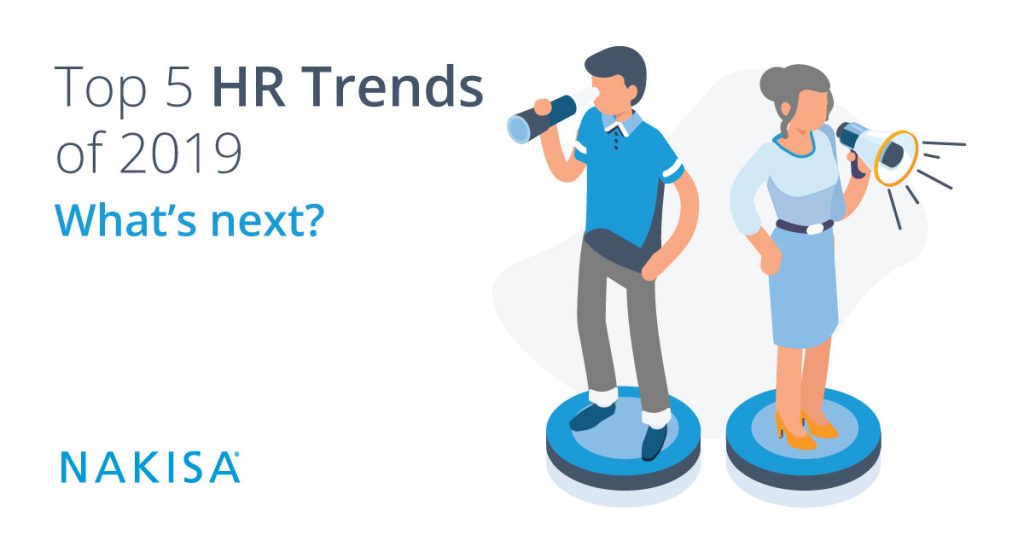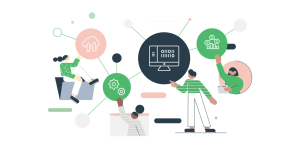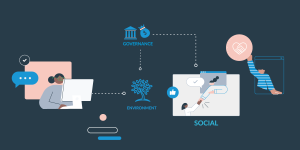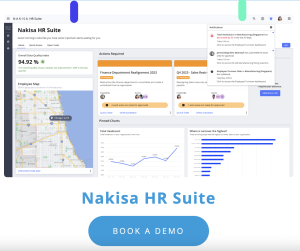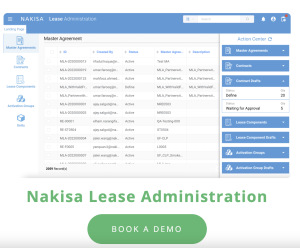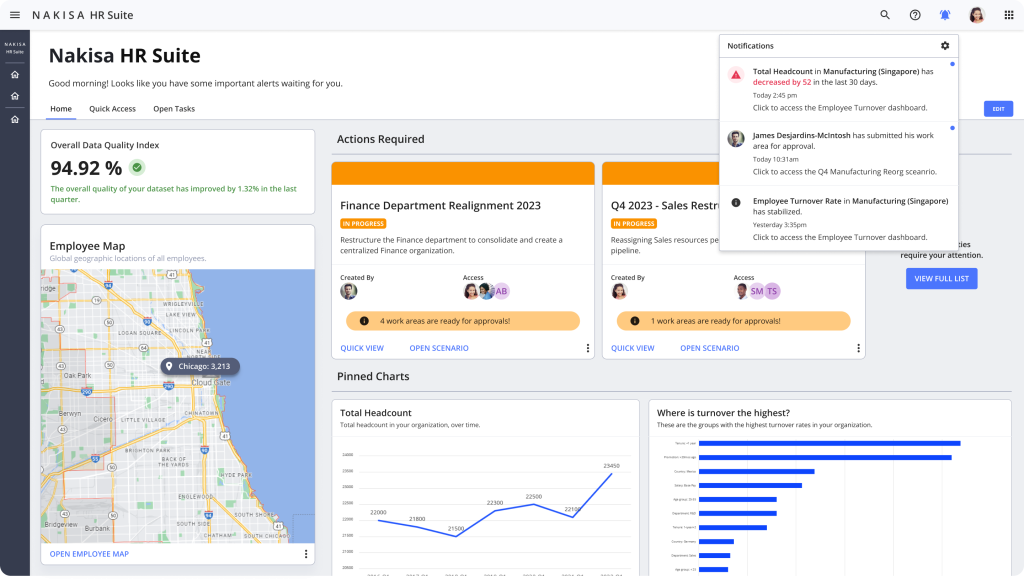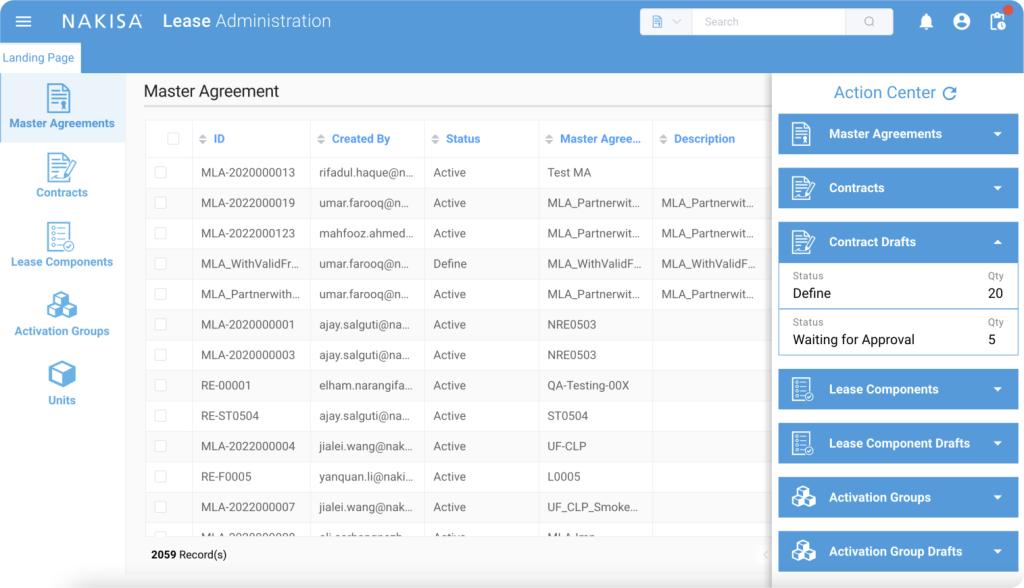It’s 2019.
The new year brings new opportunities for HR professionals—but it also brings increasingly complex challenges.
People data and HR technology have become the driving force of the HR conversation in recent years, and they continue to grow in importance in work of HR professionals, and business leaders.
As the role of HR continues to evolve, HR teams need to adapt their tools and strategies. But, what does that evolution look like?
Here’s a look ahead at the top 5 HR trends we see coming down the line, and what they mean for HR professionals in 2019.
- Companies will need to build more trust around people data.By tracking and analyzing data from multiple sources (social media, employee survey data, voice communications, email, etc) companies now have a treasure trove of information to help ensure employee satisfaction and to spot potential management blind spots.However, as the 2018 Deloitte Human Capital Trends report points out, “in the face of the obvious benefits, many executives may be slow—or perhaps reluctant—to recognize the significant potential risks. Organizations are approaching a tipping point around the use of people data, and those that tilt too far could suffer severe employee, customer, and public backlash.”HR people data is here to stay, but organizations need to make a concerted effort to engage employees and potential employees on how their data is used and ensure that it’s protected.
- The employee experience will become a competitive advantage.“Millennials will make up more than 50% of the global workforce by 2020,” according to PwC, “and even higher in technology and high-growth industries.”As we’ve highlighted before, millennials are looking for holistic, supportive employee experiences and will make career decisions based on the work environment and culture organizations offer.To attract the best talent, HR teams will need to utilize technology to create better experiences for their workers—by inviting honest feedback, offering alternative work environments, and through support of challenges faced by employees outside of their jobs.
- AI will become an increasingly integral part of HR operations.We’ve already seen HR teams integrate artificial intelligence to help manage important—and previously time-consuming—management operations. This will continue as AI becomes a bigger part of important HR processes like gathering and maintaining organizational data, boosting collaboration among leadership and teams, “cybervetting” potential candidates, and improving training and career advancement.While this will help in freeing HR teams of some of their more resource-heavy work, it will require robust data collection and management. The human touch cannot be removed from the process, just much simplified and streamlined when the right technology is used.
- Training takes a big step forward thanks to technology and VRVirtual reality will create a fresh and cost-effective approach to training in 2019, especially for large-scale organizations looking to train a big workforce.According to HR experts, VR training could be especially helpful in tackling important, but sensitive workplace issues such as sexual harassment.As HR researcher Courtney Moran boldly predicts:“The VR-based sexual harassment training industry will increase 15% in 2019. As a result of the increase of interactive, fully immersive sexual harassment training, the number of sexual harassment cases will decrease.”Using technology like VR as a tool to train your workforce also makes the increasing number of remote workers easier to train effectively and efficiently.
- Diversity and inclusion continue to be points of emphasis for HR.In 2019, companies will continue to prioritize diversifying their workforce and improving inclusion. Data and technology can help them do that—especially during the recruiting process.New “blind hiring” technology can help eliminate unconscious human bias in the hiring process by allowing technology to screen and rate potential candidates.Technology will also play a big role in helping organizations understand their current diversity challenges and setting strategies for meeting diversity goals. Understanding the current state with tech like an organizational design solution can provide HR teams with on demand, in depth analytics using their own people data, to help execute on diversity initiatives and address potential obstacles.
The challenges for HR teams are big in 2019, but the opportunities to transform the process of recruiting and retaining employees, while delivering on the business KPIs is even bigger.
The continuing evolution of HR’s role in today’s corporate environment makes the ever-advancing HR technology incredibly important. Using an organizational design solution, like our own Nakisa Hanelly, can help you prepare for these and other HR trends before they start to impact the organization. Use existing data and HCM solutions integrated with a single system to give a global view of the organization, plan and prepare for business change and keep up to date with the needs of the organization.
The only question remaining for HR professionals today is: Do you have the right tech to support what comes next?
